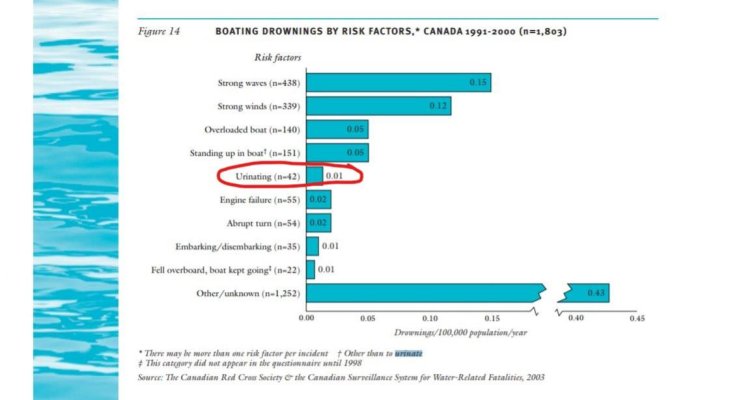I think that the seatbelt analogy fits most of the PFD situation. Many of us can remember when President Reagan (famous for his opposition to federal regulation) said that he would make some type of federal regulation on crash safety if the states did not adopt a universal seatbelt requirement. And many can remember the arguments used in opposition. Most were so silly that people now can't believe that they were ever made.
1) "Seatbelts (like PFDs) give a false sense of security." I know that when first driving with a seatbelt on I would take short naps. Not.
2) "Seatbelts (like PFDs) are uncomfortable." This had some validity in the 1970s, although my 1973 Volvo had a comfortable retractible three-point seatbelt design that U.S. vehicles then followed. The Volvo also had a constant buzzer and light if you didn't put it on. But that was 50 years ago. I haven't heard the complaint about seatbelts being uncomfortable in decades. The same is true with PFD designs. It is no longer a moldy canvas kaypok-stuffed brassiere. I even forget that my inflatable is on and often wear it home. I think they are so comfortable that even spoiled teenage girls wouldn't complain, although I do my best to avoid them (spoiled girls, not PFDs).
3) "Seatbelts (like PFDs) make me look stupid." Most of us probably get that comment even without a seatbelt. And would you look less stupid with windshield glass mashed into your face? As for PFDs, doesn't a drowned man with his PFD still in the hanging locker look stupid? Or at least stupider than the victim wearing a PFD.
Our rule onboard is that if there isn't a barrier between you and the briney deep you need to be wearing a PFD. I usually forget mine is on, so I end up wearing it at the helm a lot. It would be fine with me if, like my old Volvo, a buzzer went off if I went on deck without it. Like the Volvo, the buzzer would only activate if the engine was running.* That could allow me to go on the foredeck at anchor. I would probably have enough Pavlovian conditioning to make me put on a PFD out of habit (despite the hurtful comments from teenage girls on the next boat about how I look stupid.)
* Probably save more lives than the wristband gadget that shuts the motor off in a MOB situation.




